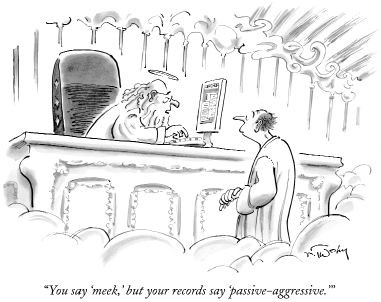Century Marks

First (and last), do no harm: Surgeon Pauline W. Chen recalls that before she graduated from medical school a veteran surgeon told her, without emotion, “Somewhere along the line you are going to kill one of your patients.” This remark haunted her after one of her patients died following surgery, despite her best efforts to keep him alive. Doctors take their work very personally, she says, and surgeons will do everything possible to keep a patient from dying, especially “on the table.” But once a patient dies, doctors are eager to get the deceased body out of the operating room. “By defining death only as the result of errors, we erase the face of the patient and insert our own fiercely optimistic version of immortality,” thus denying “ourselves grief” (Virginia Quarterly Review, Winter).
No easy answers: Sociologist Amitai Etzioni’s wife was killed in an auto accident in 1985, and his 38-year-old son died last year of a heart attack, leaving behind a pregnant wife and two-year-old son. Writing about the eulogy he gave at his son’s funeral, Etzioni said that “I divulged that I believe in a God who brings meaning to the world, but that my belief has been severely tested. I missed seeing God in the killing fields of Cambodia, and he seems too busy to show up in Darfur, or to shine his face on either the Sunnis or the Shi’ites in Iraq. With a rising voice, I asked at the funeral: How could God allow a son to be taken from his ageing, ailing father? A devoted husband to be torn from the arms of his loving wife in the middle of the night? How could he allow a two-year-old to be left searching for his father in vain, or deny an infant the chance to see the father even once?” (Expository Times, March).
Do you believe in miracles? There are two ways of living in the modern world, says Robert Orsi of Harvard University: either you can tolerate “ways of being and imagining oriented to divine presence” or you can’t. Being a Catholic compels him to ask questions that are not allowed in modern academic disciplines, such as: is there a real presence in the Eucharist? Do people actually experience miracles without empirical explanations? “What I am searching for is a radical empiricism of the visible and invisible real,” says Orsi, who posits a category in history and culture of “abundant events.” These events are one of a kind, out of the ordinary. Abundant events exist in the intersection of the conscious and unconscious and of the past, present and future, and in the intersubjectivity of human experience (American Scholar, Spring).
Caveat lector: The Vatican has condemned “errors” expressed in two books on Jesus by Roman Catholic priest Jon Sobrino, a noted theologian of liberation in Latin America. Sobrino was a theological adviser to Archbishop Oscar Romero of El Salvador, who was shot and killed by death squads. Sobrino, 69, has said his work has been misrepresented as part of a campaign to discredit liberation theology. Rome has not silenced the Jesuit cleric, banned his books or barred Catholics from reading them (ENI).
Mark of the beast: Some Christians believe that the federal Real ID Act, which will standardize state driver’s licenses, marks the beginning of the end times. They believe that the ID law is connected to the “mark of the beast,” the number 666, which is associated with the Antichrist in the book of Revelation, and that the law will be used to control commerce internationally during the so-called Great Tribulation. These fears are helping to fuel noncompliance movements in Maine, Arkansas and Georgia, as well as in Missouri, which approved a bill to opt out of the federal system. The federal ID program was proposed after 9/11 when it was discovered that most of the terrorists had obtained fake driver’s licenses (St. Louis Post-Dispatch, March 22).
Party politics and piety: Stuart Rothenberg of the Rothenberg Political Report is skeptical that Democrats can win over evangelical voters by using the right language. The Democrats had minimal impact on white evangelical voters in 2006, Rothenberg says. Evangelicals don’t care as much about candidates’ religiosity as they do about their stands on the issues. Though many evangelicals are increasingly concerned about the environment and social justice for the poor, he said, abortion and other culture-war issues remain their central concern. White evangelicals “are not going to support a pro-choice, pro–gay rights Democrat because he or she is an environmentalist or wants the government to help the poor.” White evangelicals are more likely to change the Republican Party than to change parties (Roll Call, March 22).
Kingmaker? Religious affiliation matters to James Dobson, head of Focus on the Family. About former Senator Fred Thompson, who is considering running for the Republican nomination for president, Dobson said: “Everyone knows he’s conservative and has come out strongly for the things that the pro-family movement stands for,” but, Dobson added, “I don’t think he’s a Christian; at least that’s my impression.” A spokesperson for Thompson said that Thompson is a Christian, having been baptized into the Church of Christ. As for Mitt Romney, Dobson said, “There are conservative Christians who will not vote for him because of his Mormon faith. I’m not saying that’s the correct view or my view” (U.S. News & World Report, March 29).





